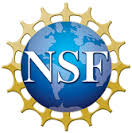Thomas Connor receives Fulbright Research Award
Add Summary

Doctoral student Thomas Connor will spend a year both seeking to understand the forces that divide wildlife habitat in China and building bridges of understanding between scientists, nature lovers and tourists as a Fulbright Scholar.
Connor, who studies under the direction of Jianguo “Jack” Liu, Rachel Carson Chair in Sustainability, is working to understand the complex forces that fragment giant panda habitat in southwestern China. He will begin his Fulbright year this winter to build on last year’s work roaming the remote mountains of the Sichuan Province searching for signs of the elusive pandas – most notably their feces. He also will continue to both build his Mandarin language skills and engage locals and tourists with conservation outings there.
"I am honored to receive a Fulbright Research Award to China, which will help me finish my dissertation research on giant panda population connectivity and wildlife habitat fragmentation. Additionally, in a time where the USA's position in the world is increasingly uncertain, I look forward to endeavoring to be a thoughtful and positive ambassador to China."
The Fulbright U.S. Student Program, introduced by Sen. J. William Fulbright in 1945, is the largest U.S. exchange program offering opportunities for students and young professionals to undertake international graduate study, advanced research, university teaching and primary and secondary school teaching worldwide.
The Fulbright Program aims to increase mutual understanding between the people of the United States and the people of other countries. Connor joins the flagship international educational exchange program sponsored by the U.S. government, alongside many distinguished figures around the world.
Connor also has been awarded an East Asia and Pacific Summer Institutes (EAPSI) by the National Science Foundation.
Foundation.
An EAPSI award provides U.S. graduate students in science, engineering, and education first-hand research experiences in Australia, China, Japan, Korea, New Zealand, Singapore, or Taiwan; an introduction to the science, science policy, and scientific infrastructure of the respective location; and an orientation to the society, culture, and language. It is expected that EAPSI awards will help students initiate professional relationships to enable future collaboration with foreign counterparts.
The NSF award includes a $5,000 summer stipend of $5,000, and roundtrip airplane ticket to the host location.



 Print
Print Email
Email
